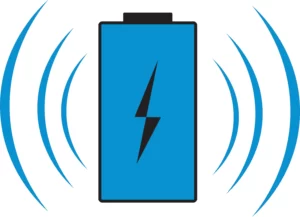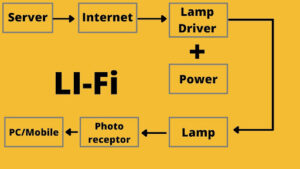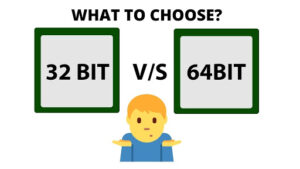What Is Usenet?
Usenet is a global network of computer-based
discussion forums that has been in existence since the early days of the internet.
Originally developed in 1979 as a way for researchers to share information and
communicate with one another, Usenet has grown into a massive online community
with millions of users and thousands of active discussion groups.
The Usenet network is distributed across a large
number of servers, each of which hosts a collection of discussion groups known
as newsgroups. These newsgroups cover a wide range of topics, from politics and
current events to technology and entertainment. Users can access Usenet using
specialized software called newsreaders, which allows them to read and post
messages to various newsgroups.
One of the unique features of Usenet is its
decentralized nature. Unlike other online communities that are hosted on a
central server or network, Usenet is distributed across many different servers
operated by various organizations and individuals. This means that Usenet is
not subject to the same kinds of censorship and content restrictions that other
online communities might be subject to.
However, this decentralization also means that
Usenet can be a somewhat difficult system to navigate for new users. There are
thousands of different newsgroups covering a vast array of topics, and it can
be challenging to find the discussions that are most interesting or relevant to
your interests. Additionally, Usenet has a somewhat steep learning curve, and
it may take some time for new users to get up to speed on the various
conventions and rules of the system.
Despite these challenges, Usenet remains a popular
destination for many users who value its unique features and culture. Usenet
users tend to be highly knowledgeable and passionate about the topics they
discuss, and the discussions in many newsgroups can be engaging and
informative. Additionally, Usenet has a rich history and culture, with many
users who have been active on the system for decades and have built up a strong
sense of community.
In recent years, Usenet has faced competition from
other online communities, particularly social media platforms like Twitter and
Facebook. However, Usenet continues to thrive, and many users remain committed
to the system as a valuable source of information and discussion.
In conclusion, Usenet is a unique and valuable
online community that has been in existence for over four decades. While it can
be challenging to navigate and may not be as widely used as other online
platforms, Usenet remains an important destination for users who value its
decentralized nature, passionate discussions, and rich culture.
Usenet has a rich history that dates back to the
early days of the internet. Originally developed as a way for researchers to
share information and collaborate with one another, Usenet quickly grew into a
thriving online community. In the early days, Usenet was primarily used by
academics and researchers, but over time it became more accessible to the
general public.
One of the key features of Usenet is its system of
newsgroups, which are organized around specific topics or areas of interest.
Users can browse or search for newsgroups that cover the topics they are
interested in, and then participate in discussions with other users who share
their interests. This system of newsgroups has helped to create a strong sense
of community on Usenet, with users often developing close relationships with
one another over time.
Another unique feature of Usenet is its system of
moderation. Unlike other online communities that rely on centralized moderation
or algorithmic filtering, Usenet is moderated by individual users who volunteer
to take on this responsibility. These moderators are responsible for enforcing
the rules of the newsgroup and ensuring that discussions remain on-topic and
civil.
Usenet also has a rich culture that has developed
over the years. This culture includes various conventions and traditions, such
as the use of ASCII art and the creation of FAQ documents to help new users
navigate the system. Usenet also has its own language and terminology, with
many unique acronyms and abbreviations that are used in discussions.
In recent years, Usenet has faced challenges from
other online communities and technologies. The rise of social media platforms
and messaging apps has led to a decline in the use of Usenet by some users.
However, Usenet remains an important destination for many users who value its
unique features and culture.
In conclusion, Usenet is a unique and valuable
online community that has a rich history and culture. While it may not be as
widely used as other online platforms, Usenet remains an important destination
for users who value its decentralized nature, passionate discussions, and rich
tradition. Whether you are a long-time Usenet user or a newcomer to the system,
there is much to explore and discover on this fascinating network.
Components Of Usenet:- The Usenet is made up
of several components that work together to create a distributed network of
discussion forums. These components include:
- News
servers: News servers are the backbone of Usenet. They are responsible for
hosting the various newsgroups and distributing messages between servers.
Each news server hosts a subset of the newsgroups available on Usenet, and
messages are passed between servers in a decentralized manner. - Newsgroups:
Newsgroups are the discussion forums that makeup Usenet. They are
organized around specific topics or areas of interest, and users can
browse or search for newsgroups that cover the topics they are interested
in. Each newsgroup has its own set of rules and guidelines that are
enforced by the community. - Newsreaders:
Newsreaders are specialized software programs that allow users to access
Usenet. They provide a user interface for browsing and searching
newsgroups, as well as tools for composing and posting messages. There are
many different newsreader programs available, ranging from simple
text-based interfaces to feature-rich graphical interfaces. - Moderators:
Moderators are volunteers who are responsible for enforcing the rules and
guidelines of a newsgroup. They help to ensure that discussions remain
on-topic and civil, and they have the power to remove messages or ban
users who violate the rules. - Binary
newsgroups: In addition to text-based discussions, Usenet also includes
binary newsgroups that are used for sharing files. These newsgroups are
often used to distribute software, music, and other types of digital
content.
Overall, these components work together to create a
dynamic and decentralized network of discussion forums that have been in
existence for over four decades. While Usenet may not be as widely used as
other online platforms, it remains an important destination for users who value
its unique features and culture.
Another component of Usenet is the Usenet
hierarchy. The Usenet hierarchy is a hierarchical naming system that organizes
newsgroups into a tree-like structure. The hierarchy is divided into several
broad categories, such as comp., rec., and sci.*. Within each category,
there are subcategories that further refine the topics covered by the
newsgroups.
Usenet also has a rich culture that has developed
over the years. This culture includes various conventions and traditions, such
as the use of ASCII art and the creation of FAQ documents to help new users
navigate the system. Usenet also has its own language and terminology, with
many unique acronyms and abbreviations that are used in discussions. For
example, “OP” refers to the original poster of a message, while
“FAQ” stands for “frequently asked questions.”
Usenet also has a system of etiquette that is
followed by many users. For example, it is considered polite to include a
summary of the message being replied to, rather than simply quoting the entire
message. Users are also expected to stay on topic and avoid personal attacks or
flame wars.
In recent years, Usenet has faced challenges from
other online communities and technologies. The rise of social media platforms
and messaging apps has led to a decline in the use of Usenet by some users.
However, Usenet remains an important destination for many users who value its
unique features and culture.
In conclusion, Usenet is a unique and valuable online
community that has a rich history and culture. It is made up of several
components, including news servers, newsgroups, newsreaders, moderators, and
binary newsgroups. Usenet also has a hierarchical naming system, its own
language and terminology, and a system of etiquette. While it may not be as
widely used as other online platforms, Usenet remains an important destination
for users who value its decentralized nature, passionate discussions, and rich
tradition.
Summarised version
The full form of Usenet is User Network. It is an
international, non-commercial network, linking thousands of UNIX-based sites.
It is the world’s largest electronic discussion forum. It provides a path for
messages to be sent among computers across the entire Internet. People from all
over the world participate in discussions on thousands of topics in specific
areas of interest called newspapers.
There is always a
Governing body on the Internet, but there is no governing body in Usenet. Only those people who use the
Usenet can run the Usenet. With well over 10,000 different Newsgroups, Usenet
is accessed by millions every day, in more than 100 countries. The service
allows a group of Internet users to exchange their views or ideas on some
common topic that is interesting to all the members of that group. There are
some groups on the Internet, they are called Newsgroups.
Components Of Usenet:– Usenet is like an
electronic bulletin board. Different people have different ideas and they also
want to share their knowledge on the Internet. There are too many people who
have different types of problems with these subjects. The Usenet works on the
‘Client/Server concept. For this reason, there are two main components of
Usenet.
They are – 1. News server.
2. Newsreader.
News servers are used to distribute the articles
posted on Newsgroups. The News servers also store the article data and serve
them as long as the owner wants. The reader needs a different software to read
the articles, the software is called newsreaders. There is a different protocol
that is named “Network News Transfer Protocol (NNTP)” which is used to
communicate with News servers and Newsreaders.




